He is the visionary behind the world’s first underwater villa — and the mind behind a portfolio of prestigious projects that span continents and coastlines. His architectural signature is unmistakable — not because it shouts, but because it whispers. Tokyo-born, New York–based architect Yuji Yamazaki is known for creating spaces that remind us that true luxury lies not in abundance, but in awareness. From private resorts in the Maldives to cultural spaces in Japan and beyond, his projects are less about structure and more about spirit. Each is an invitation to slow down, to inhabit space with intention, and to rediscover beauty in restraint.
Yamazaki carries forward the quiet discipline of Japanese design — ma, the poetry of space. It is the concept of the void, the space between objects, and the silence between sounds. This principle, along with shibui (subtle elegance) and wabi-sabi (the grace of imperfection), guides his work. Yet his vision transcends geography, speaking a language of calm that feels both local and universal — adding emotional and aesthetic depth to every project.
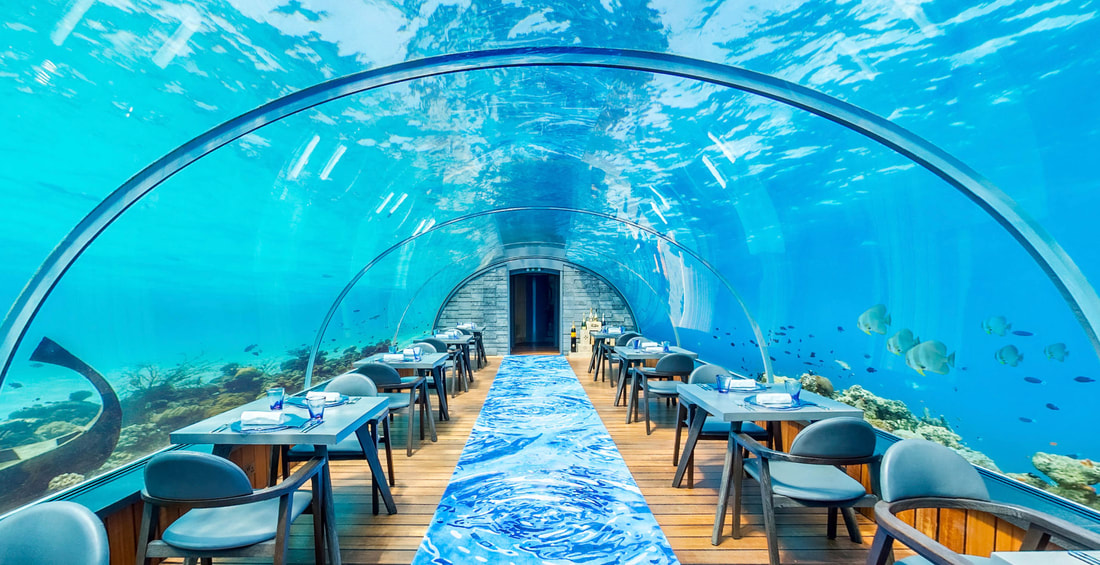
A Dialogue Between Worlds
In Yamazaki's view, architecture is not about imposing form but revealing harmony. His spaces are carefully tuned compositions where proportion and emptiness hold equal weight. This sensitivity gives his projects an emotional resonance that not only bridges cultural borders but also deeply engages the viewer, inviting them not just to observe, but to inhabit the architecture itself.
In the Maldives, where he has reimagined luxury through various resorts, his vision merges Japanese precision with island humility. Villas open like origami to the sea, corridors dissolve into courtyards, and light itself becomes a design element — reflecting both a Zen sensibility and tropical ease. It is this dialogue — between East and West, discipline and freedom, minimalism and warmth — that defines Yamazaki's global appeal: a harmony that honors and unites distinct philosophies.
The Beauty of Less
To understand Yuji Yamazaki is to understand restraint as an act of generosity. His architecture is never about how much one can add, but how much one can let go. This idea of letting go is not about absence, but about presence — about creating space for the environment and the human spirit to meet. Glass and timber, water and shadow — these are his instruments, each tuned to the environment and emotion of the space. Rather than dominate the landscape, his structures recede into it. They invite you to notice the play of breeze, the curve of light on stone, the sound of your own breath. In this way, his buildings are not destinations but experiences — living meditations that reconnect people to their surroundings.
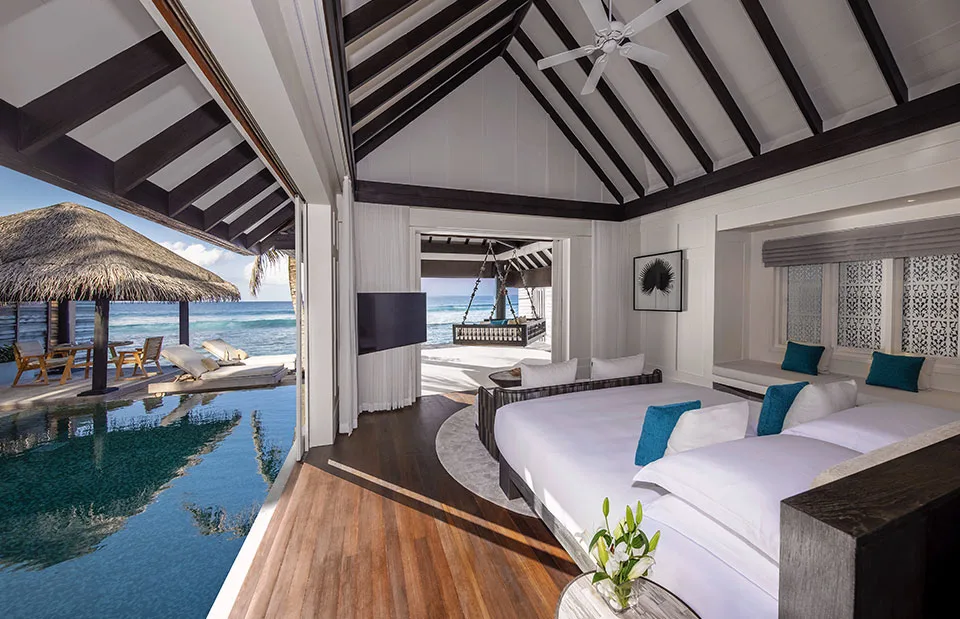
Bridging Cultures, Building Consciousness
What makes Yamazaki's work profoundly relevant today is his ability to merge cultural sensitivity with environmental consciousness. His projects weave local craftsmanship, renewable materials, and sustainable systems into every layer — a reflection of Japanese ethics meeting global responsibility.
Nowhere is this vision more visible than in his work across the Maldives, where sustainability is not a statement but a necessity. With the nation’s low-lying geography and vulnerability to rising seas, achieving carbon neutrality here carries symbolic and practical weight. Yamazaki’s projects in the region showcase how resort architecture can serve as a model for sustainable development worldwide — proving that environmental responsibility and refined luxury can coexist.
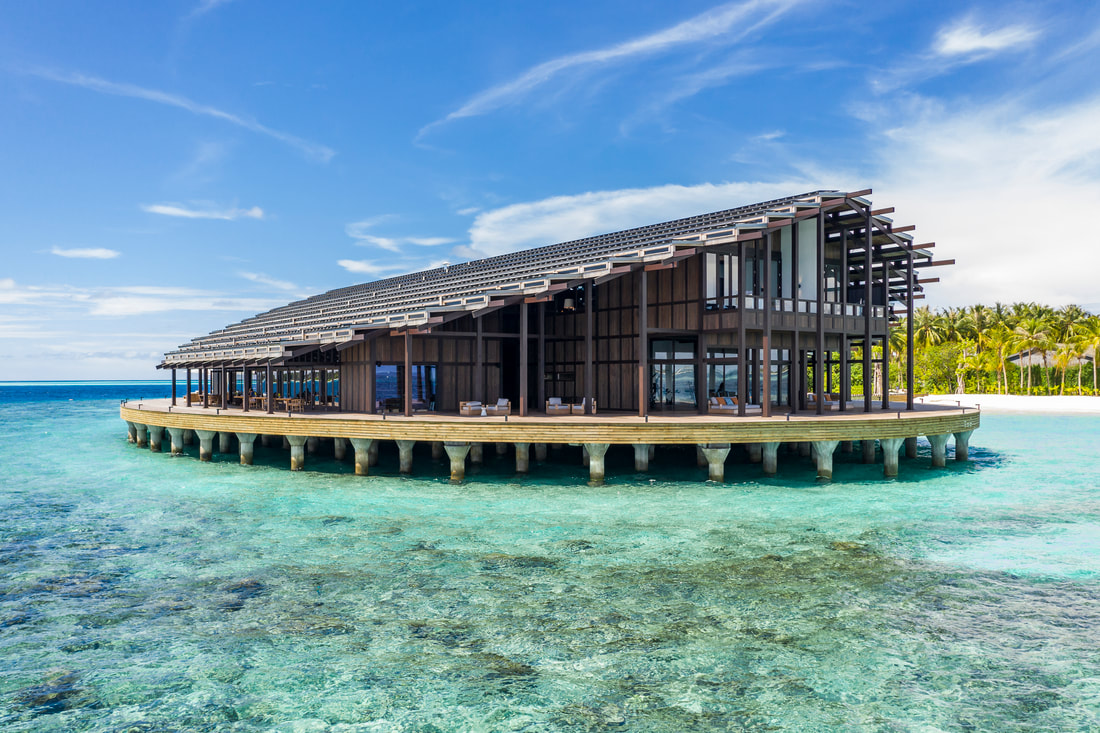
A master at integrating solar panels and energy-efficient systems into elegant, seamless designs, he redefines what it means for sustainability to look and feel beautiful. In his hands, eco-consciousness becomes not an addition, but an aesthetic — part of the architecture’s quiet harmony with its surroundings.
Yuji Yamazaki is a Tokyo-born, New York–based architect and the principal of Yuji Yamazaki Architecture (YYA). His design practice spans architecture, interior, landscape, and sustainable systems, with a special emphasis on hospitality and resort projects around the world. Yamazaki is celebrated for integrating quiet Japanese design principles with advanced sustainability solutions — for instance, solar power systems and energy-efficient strategies hidden within elegant forms. Among his notable works are award-winning resorts in the Maldives, including projects that push the boundaries of what luxury and ecological responsibility can look like together.
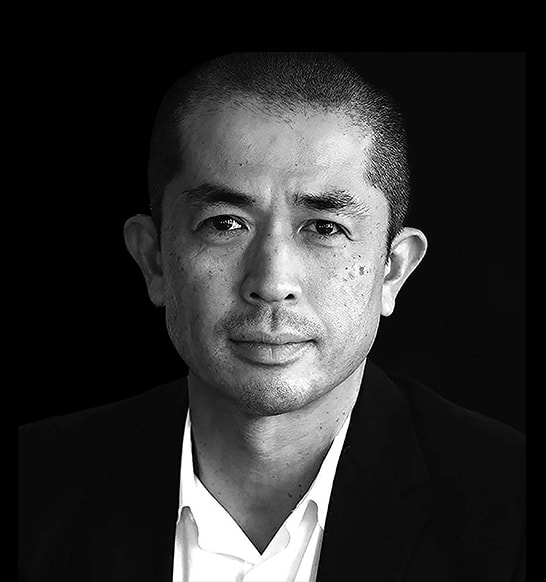
A Quiet Legacy
In bringing the essence of Japan to the world, Yamazaki has created a new architectural language — one where design becomes philosophy, and sustainability becomes art. His spaces are not meant to impress; they are intended to endure, serving as a testament to the power of thoughtful design and the lasting impact it can have on our lives and the environment.
In an era defined by visual noise, Yuji Yamazaki's architecture reminds us that stillness can be revolutionary. His creations are less monuments than moments — expressions of how we might live more lightly, see more clearly, and feel more deeply. To step into one of his spaces is to realize that silence, too, has its own music — and that true luxury, like true art, is made not of excess, but of essence
About the author
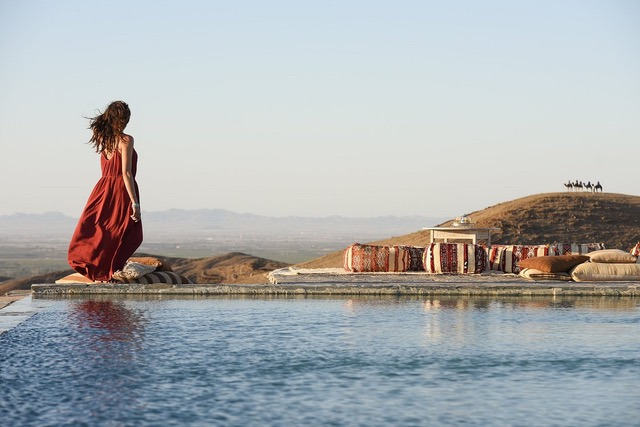
Subscribe
-
 Solomeo Italy's Hidden Hamlet of Harmony and Haute Couture
Solomeo Italy's Hidden Hamlet of Harmony and Haute Couture -
 Breakfast with Justyna Grochowska, Talking The Moore, Manhattan, and more
Breakfast with Justyna Grochowska, Talking The Moore, Manhattan, and more -
 Editor's Note October 2025
Editor's Note October 2025 -
 Whispers of the Nile
Whispers of the Nile -
 How Winning Is Done, The Quiet Fight Behind Every Dream
How Winning Is Done, The Quiet Fight Behind Every Dream



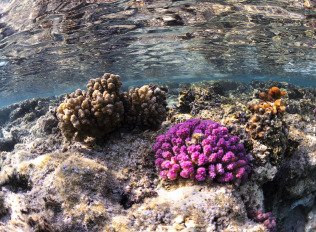
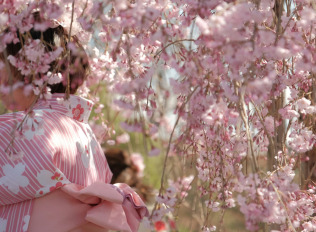
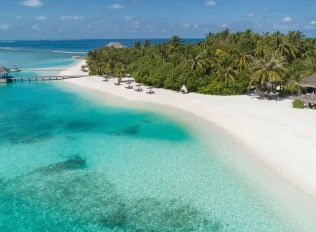


Leave a Reply